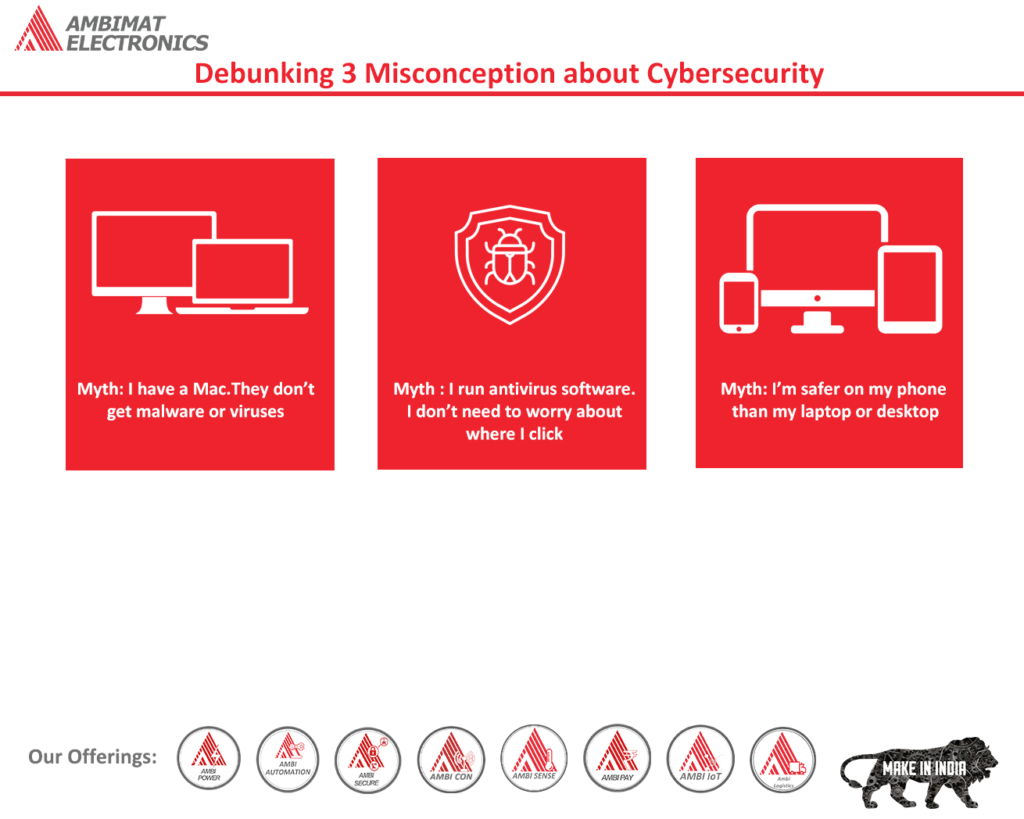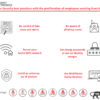Debunking 3 Misconception about Cybersecurity
Online services have become a rage now. People are using online base services more than ever. Moreover, the COVID pandemic forced many of us to rely on digital identities for almost everything. From working to shopping, and from learning to keep in touch with others. this is the time authentication technologies are put to test to safeguard our digital information.
What we have learned so far is that cyber threats are not slowing down, and it won’t. Phishing scams are targeting everybody. It is putting their vital information and credentials at risk, and therefore, every person should have the means to tackle such attacks. The foremost thing we can do is switch to two-factor authentication wherever we can.
Some of us may feel whether two-factor authentication is the right choice. Well let us consider few cybersecurity myths, to ease your mind in making more informed decision and increasing online security.
Cybersecurity Myth # 1:
Complex and Unique Passwords are Secure Enough Irrespective of the length and uniqueness of passwords, it is sad to mention that they are not built to stand against sophisticated hackers and their ever-evolving threats. However, the fact remains that many of us are habituated of using passwords, but maintaining a proper password management and hygiene is vital. Password managers are available to users to track and remember their complex passwords, but it is recommended to take online security to the next level.
The use of two-factor authentication will provide and additional layer of security, even with password manager enabled. 2FA acts like a barrier, and if passwords are compromised, hackers still require the second-factor to gain access to accounts. Hardware security keys are designed to reduce account takeovers as it requires physical access to the key to log in to accounts.
Cybersecurity Myth # 2:
All Two-factor authentication is created equal Having any kind of two-factor authentication to secure accounts is better than none at all. However, when implementing 2FA it is imperative to understand which would work best, and reduce attacks. SMS and mobile authenticator apps are the most common form of 2FA, but it is becoming vulnerable to sophisticated phishing scams, malware, and man-in-the-middle attacks.
The choice of 2FA will depend on user ability to recognize whether they are being targeted by attackers or not. However, human error will persist and vulnerabilities will continue to grow, as even the most vigilant users can be tricked by cyber attackers. The most effective way to protect system and accounts is through the use of security keys. Investing in security keys is a cost-effective solution to increase online security.
Cybersecurity Myth # 3:
Two-factor authentication is time consuming and complex Many users feel that implementing two-factor authentication is time consuming and complex. However, in reality, it is quite the opposite. It is simple and does not require users to copy and paste one-time passwords.
Hardware security keys offers a streamlined experience to authenticate user identity. Users simply need to insert or tap a key to log into accounts. Additionally, they can set their devices such as laptops and smartphone as trusted source which will only require them to log in once, as long as they are using the system.
Security keys can also be used with single sign-on services that uses Google, Facebook, or Microsoft accounts. Users can leverage the same 2FA protection to other application as well. Strong authentication needn’t be complicated, in-fact it should be seamless.
It may seem quite overwhelming to incorporate such measures to stay safe – but it is quite simple and easy. Now, that all myths have been exposed in respect to cybersecurity and 2FA. Users can now take the required steps to protect their online accounts.
Reference:
Use AmbiSecure to protect online accounts
FIDO2 is a standard that simplifies and secures user authentication. It uses public-key cryptography to protect from phishing attacks and is the only phishing-proof factor available. Users can benefit from Fast Identity Online or Fast ID Online (FIDO) authentication, as it secures online accounts and minimizes security risks, and improve overall user experience. The AmbiSecure key and card is FIDO certified which offers superior security by combining hardware-based authentication and public key cryptography to effectively defend against phishing attacks and eliminate account takeovers.
AmbiSecure helps organizations accelerate to a password-less future by providing FIDO2 protocol support. Not only does FIDO2 supports two-factor authentication, but also paves the way for eliminating weak password authentication, with strong single-factor (passwordless) hardware-based authentication. The AmbiSecure provides a simple and intuitive authentication experience that users find easy to use, ensuring rapid adoption and organizational security. AmbiSecure key or card does not require a battery or network connectivity, making authentication always accessible.




